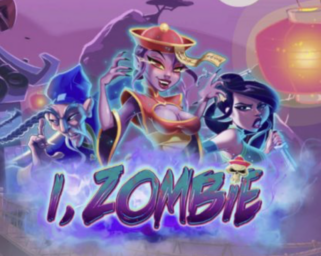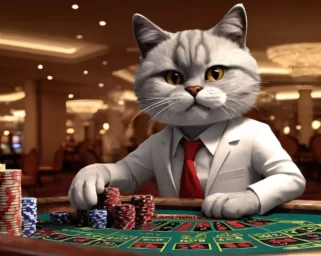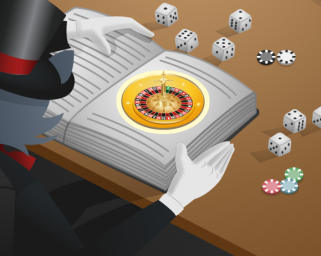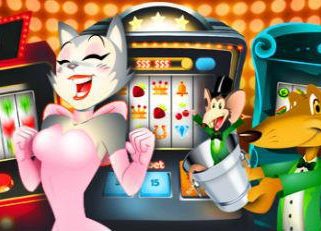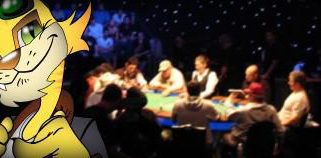Boardwalk Empire is an award-winning HBO series about the life and times of Enoch “Nucky” Thompson, and how he controlled gambling, bootlegging, and other vice in a budding Atlantic City beach resort. The character portrayed by Steve Buscemi in the series is based on real-life Atlantic City ‘boss’ Enoch L. Johnson, a real-life New Jersey racketeer.
The 2 Nuckys
While both the reel Nucky and the real Nucky were larger-than-life figures, some amount of artistic license was taken with the fictional version of the character. This was necessary to create drama and to expand the fictional storyline into 5 seasons of 56 episodes. In real life, Nucky Johnson was a tall, muscular man of over 220 pounds, compared to the slim figure of actor Steve Buscemi as the fictional Nucky. But both men oversaw a vast criminal conspiracy built on illegal liquor, gambling, and prostitution. And both were dapper, charismatic men who commanded respect. Both Nuckys also wore a fresh red carnation in their suit lapels, a personal trademark.
In the TV series and in real life, Nucky had a wife named Mabel who died young. Although in real life, tuberculosis took Mabel, not suicide. TV Mabel’s suicide was a reaction to the death of their infant son, while the real Nucky had no children. They both remarried eventually after the loss of their wives, but on a different timeline.
Atlantic City

Every corruption story has its setting, and Nucky’s was Atlantic City of the Roaring Twenties. Established as a summer beach resort in 1854, Atlantic City did particularly well in the summer months. As with any seasonal business, hard times follow in the off season. Atlantic City was dead in winter. As gambling was illegal in surrounding states, Atlantic City hotel and bar operators began allowing secret back room card tables and other forms of gambling. The word spread in certain circles, and soon Atlantic City gained a reputation. But the Prohibition era hit the U.S. in 1920. However, what was bad for business everywhere else, became a boon for the struggling town. Backroom card games easily became speakeasy bars, and Atlantic City soon profited year round.
A Piece of the Action
Nucky Johnson held the position of Atlantic County Republican Executive committee secretary, a politically important position. He succeeded local political boss Louis Kuehnle, a man convicted of corruption. But Atlantic City was already running on vice and corruption, so Nucky Johnson merely stepped in to carve out a piece of the action for himself. Nucky knew very well every aspect of the vice business in the city, and was more than happy to allow it continue—for a piece of the pie. Johnson received a sizeable percentage of every gambling, bootlegging, speakeasy, and prostitution operation in town. And when Prohibition rolled in, so did the big money. Nucky Johnson now cornered the market on alcohol distribution on the East Coast. And once he became the county treasurer, he held the purse strings for the entire vice business. And business was booming.
The World’s Playground

Following World War I, the West embarked on a long journey of economic and cultural expansion fueled by the Industrial Age. People had money to burn in jazz bars, speakeasies and casinos, and Atlantic City was poised at the epicenter of it all. In the Roaring Twenties, the loudest roar came from Nucky Johnson. When confronted with allegations of Atlantic City vice and corruption, he did not deny it:
“We have whisky, wine, women, song and slot machines. I won’t deny it and I won’t apologize for it. If the majority of the people didn’t want them they wouldn’t be profitable and they would not exist. The fact that they do exist proves to me that the people want them.”
The fact that people will do what they want fell on deaf ears. The government outlawed the ordinary practice of selling alcohol using a maneuver of unprecedented self-righteousness. And when a government outlaws something the people want, outlaws step in to provide it for them instead. By a single misguided law called the Volstead Act, Prohibition was enabled, and organized crime, mobsters, and the mafia flourished almost overnight.
Boardwalk Empire
One important departure from reality was TV Nucky’s dealings with organized crime figures. There were no real-life turf wars in Atlantic City, and Johnson was not nearly as ruthless as Thompson. Instead, he was happy to rule over his Boardwalk Empire with a velvet hammer. He enjoyed a lavish lifestyle of luxury afforded him by his position of political power, and he did not need to go toe-to-toe with the criminal underground. He already held enough political and financial power. His income from illegal activities alone was estimated at over a half million dollars per year (over $7 million in 2019 dollars). And when Nucky Johnson was happy, everyone around him was happy. He supported the poor through charities, and he spread the wealth whenever he could.
The fictional Nucky killed people or ordered them to be killed to serve his arcane purposes. Murder plays well in dramas, so it was necessary to have the Buscemi character commit murder, especially during his scuffles with organized crime figures. The real Nucky was never known to have killed anyone, but he definitely took vice to a new level. At the height of his power, Nucky Johnson occupied a suite of rooms on the ninth floor of the Atlantic City Ritz Carlton Hotel. He hosted many lavish parties there, earning him the name ‘Czar of the Ritz.’ Johnson never needed to resort to intimidation, extortion or violence to advance his Boardwalk Empire. Beloved by his peers and all the locals, Nucky shared the wealth with those who worked with him and under him.
The Racketeer
Of course Nucky Johnson’s Empire attracted the attention of organized crime figures, but he had no beef with them. Instead, he shared control of bootlegging operations in the region with organized crime leaders known as the Big Seven. The leaders of the 7 dominant organized crime gangs included members of the Italian, Jewish, and Irish gangs operating from New York to Chicago. Johnson arranged a conference in 1929 and invited the leaders of the 7 gangs to discuss sharing control over organized crime in the region. It was during this time that he met Italian mobsters Al Capone and Lucky Luciano, and famous Jewish gangster Bugsy Siegel (who later went on to open one of the first casinos in Las Vegas).
Atlantic City was a major port for incoming illegal liquor from Canada and Europe, where there was no Prohibition. Together with the Big Seven, Thompson cornered the market on illegal alcohol import operations on the East Coast, ensuring major profits for everyone involved. In the wake of the Volstead Act, the FBI pursued organized crime with a vengeance. However, they needed to prove criminal conspiracy in order to indict any single member of organized crime. But gang loyalty was extreme, and secrecy was enforced under threat of death for informants. So the FBI began to go after the mobsters’ money.
Nucky’s Downfall

The FBI’s case against organized crime was feeble at best, so they pursued a new line of attack: tax evasion. If they could not prove that Nucky Johnson was a mobster, they could certainly question where he obtained his fabulous wealth. Once they established Nucky’s illegal income, he was arrested, tried, and convicted of tax evasion. He received a sentence of 10 years in federal prison and paid a $20,000 fine. He was paroled after only four years. But he lived the rest of his life without most of the money he had earned during his Atlantic City reign. In the television series, Nucky Thompson was gunned down by the son of one his earlier murder victims. However, Nucky Johnson died of natural causes in the Atlantic County Convalescent Home in 1968.
Maybe the reason Nucky Johnson wasn’t an infamous crime figure was because he didn’t get involved in bloody shoot-outs or have people whacked whenever the mood struck. Unlike mobsters of his era, Nucky Thompson lived and operated in the shadows, and did not go out in a blaze of glory. But his story did not remain untold. The Boardwalk Empire television series received numerous awards for its writing, acting, directing, and visual atmosphere. But at the center of the Boardwalk Empire was Nucky, the Czar of the Ritz, who presided over one of the most famous entertainment capitals in the world, Atlantic City.



